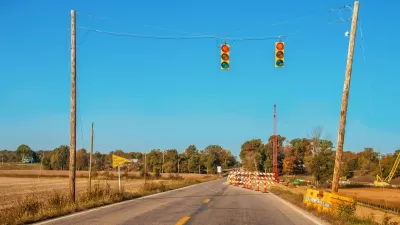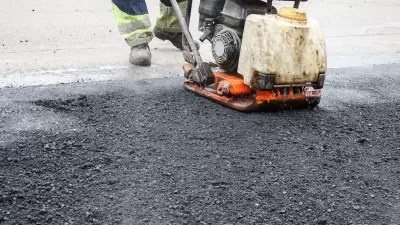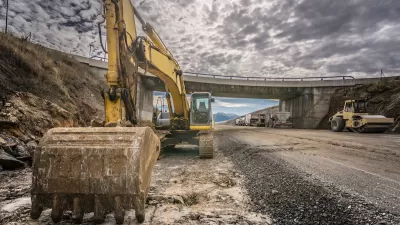"When counties had lots of money, they paved a lot of the roads and tried to make life easier for the people who lived out here," said Stutsman County Highway Superintendent Mike Zimmerman, "Now, it's catching up to them."
Amid budget shortfalls, state money for local roads has been cut and so paved roads across the nation are being torn up and replaced with gravel.
"Rebuilding an asphalt road today is particularly expensive because the price of asphalt cement, a petroleum-based material mixed with rocks to make asphalt, has more than doubled over the past 10 years. Gravel becomes a cheaper option once an asphalt road has been neglected for so long that major rehabilitation is necessary."
"The moves have angered some residents because of the choking dust and windshield-cracking stones that gravel roads can kick up." But as long as higher taxes to pay for paved road maintenance remain unpopular, many municipalities have little choice.
"A lot of these roads have just deteriorated to the point that they have no other choice than to turn them back to gravel," says Larry Galehouse, director of the National Center for Pavement Preservation at Michigan State University. Still, "we're leaving an awful legacy for future generations."
FULL STORY: Economic Crisis Forces Local Governments to Let Asphalt Roads Return To Gravel

Maui's Vacation Rental Debate Turns Ugly
Verbal attacks, misinformation campaigns and fistfights plague a high-stakes debate to convert thousands of vacation rentals into long-term housing.

Planetizen Federal Action Tracker
A weekly monitor of how Trump’s orders and actions are impacting planners and planning in America.

San Francisco Suspends Traffic Calming Amidst Record Deaths
Citing “a challenging fiscal landscape,” the city will cease the program on the heels of 42 traffic deaths, including 24 pedestrians.

Study: Anti-Homelessness Laws Don’t Work
Research shows that punitive measures that criminalized unhoused people don’t help reduce homelessness.

In U.S., Urban Gondolas Face Uphill Battle
Cities in Latin America and Europe have embraced aerial transitways — AKA gondolas — as sustainable, convenient urban transport, especially in tricky geographies. American cities have yet to catch up.

Detroit Says Problems With Property Tax Assessments are Fixed. Advocates Disagree.
With higher-valued properties under assessed and lower-valued properties over assessed, advocates say there's still a problem with Detroit's property tax system.
Urban Design for Planners 1: Software Tools
This six-course series explores essential urban design concepts using open source software and equips planners with the tools they need to participate fully in the urban design process.
Planning for Universal Design
Learn the tools for implementing Universal Design in planning regulations.
Heyer Gruel & Associates PA
JM Goldson LLC
Custer County Colorado
City of Camden Redevelopment Agency
City of Astoria
Transportation Research & Education Center (TREC) at Portland State University
Jefferson Parish Government
Camden Redevelopment Agency
City of Claremont





























